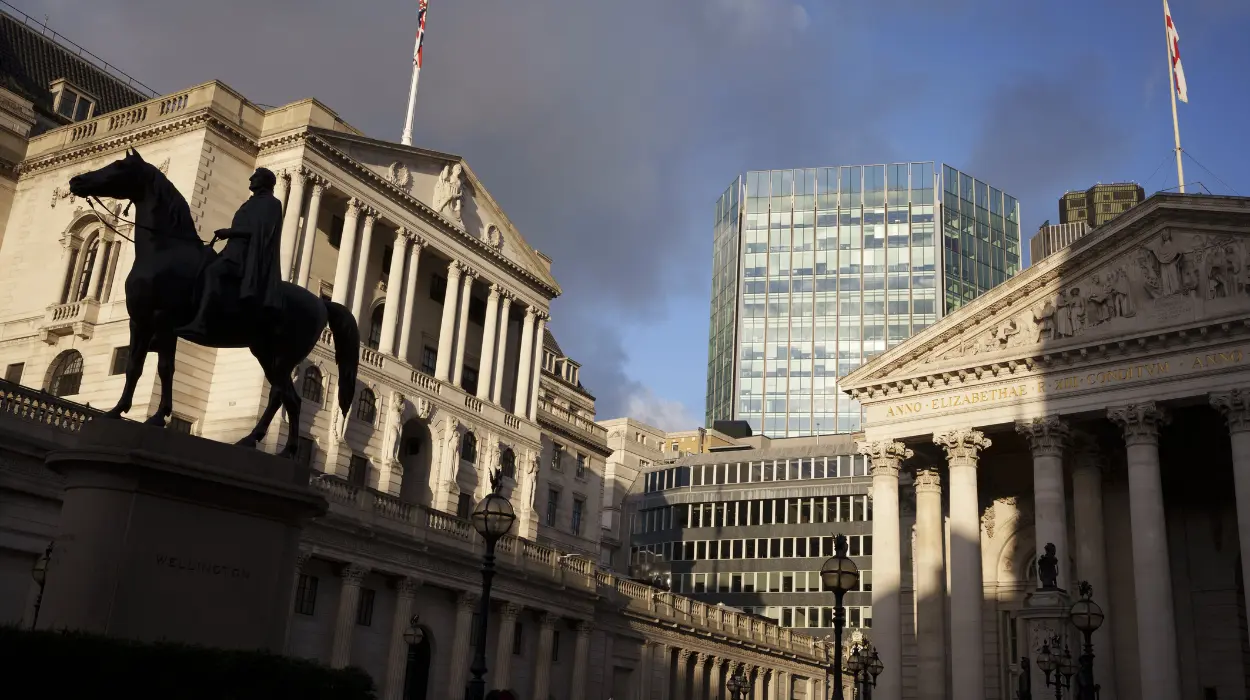London (Parliament News) – Britain’s interest rates may drop this summer, as the Bank of England considers a decrease due to decreased inflation. Analysts debate whether inflation will rebound, with some foreseeing a rate cut as early as June.
Britain’s interest rates could be trimmed this summer, the Bank of England’s outgoing deputy governor stated on Monday, adding to the expectation that a first decline in borrowing costs could come as soon as next month.
What factors are driving the Bank of England’s decision?
Ben Broadbent, the Bank’s deputy governor for monetary policy, stated that if the economy grows as expected, borrowing costs could be lowered “sometime over the summer” in reaction to an abrupt fall in inflation.
Broadbent expressed that the main drivers of inflation over the past two years – the Covid-19 pandemic and the Ukraine war – had vanished and the Bank was watching to review whether the longer-term domestic outcomes on expenses would also decline before making a first cut in interest rates.
He expressed the monetary policy committee’s (MPC) nine members must consider how those “second-round effects” in domestic expenses and wages change the course of inflation over the next two years.
Are analysts divided over the likelihood of inflation rebounding?
Analysts have divided over the likelihood of a rebound in inflation later in the year, possibly forcing the Bank to pause its goals for rate cuts. The consultancy Capital Economics has predicted that inflation will fall below the central bank’s 2% target when stats for April are published on Wednesday and drop to less than 1% before the end of the year.
“This underpins our forecast that the Bank will cut interest rates from 5.25% now to 3% next year, rather than to 3.75% as investors anticipate,” the consultancy said.
How does inflation projection affect future rate adjustments?
Other analysts predict inflation to bounce back further by 3% before the end of the year as persistently high services inflation and wage gains in the financial and business services industry remain high, feeding into higher prices.
Broadbent stated: “There is a range of views across the committee on this point. In view of the rarity of events like this over the past, and the associated uncertainty about the future, that’s entirely understandable.
“Whatever the priors of its individual members the MPC will continue to learn from the incoming data and, if things continue to evolve with its forecasts – forecasts that suggest policy will have to become less restrictive at some point – then it’s possible Bank rate could be cut sometime over the summer.”
Earlier this month the MPC voted 7-2 to leave interest rates unchanged at their current 16-year high of 5.25%, with Broadbent one of seven fellows who opted for no change.
The money markets currently demonstrate that there is a 57% chance that rates will be reduced to 5% at the Bank’s next meeting in June, while a cut by August is almost fully priced in.
Michael Saunders, an ex-member of the MPC who left in 2022, stated the Bank was likely to start cutting rates in the summer, and sooner than the US Federal Reserve.
Saunders economic adviser at Oxford Economics, stated: “We expect the BoE’s monetary policy committee will cut rates soon, with a slightly balanced choice between June and August for the first cut and rates dropping by 75bps (basis points) by year-end. This is a slightly earlier than our prediction for US easing, with a first cut expected in September and paces coming down by 50bps by year-end.”


